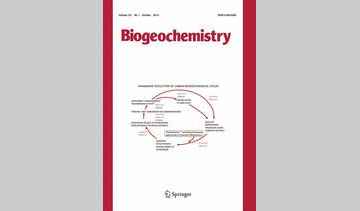LTER data key to studies in special issue of Biogeochemistry journal

Long term studies by a number of Long Term Ecological Research (LTER) sites were the basis for some of the 14 papers in a special issue of the journal Biogeochemistry entitled “Tracking evolution of urban biogeochemical cycles: past, present, and future.” The issue encompasses work by urban ecologists in different cities across the U.S. including… Read more »
